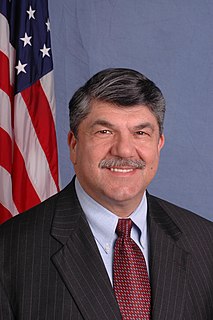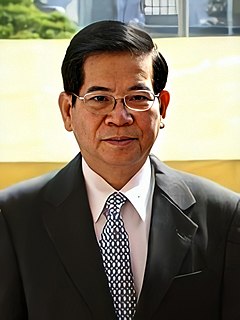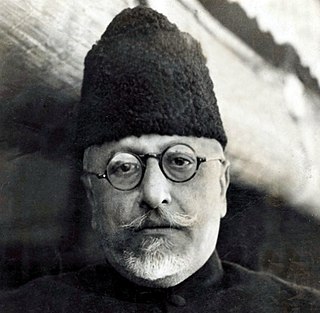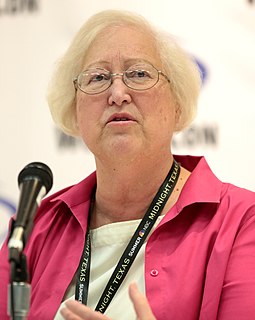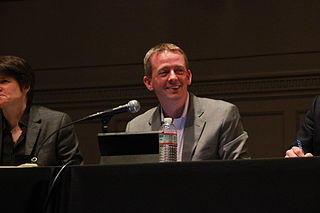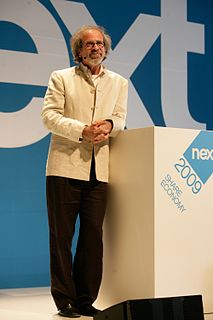Top 1200 Workers Quotes & Sayings - Page 3
Explore popular Workers quotes.
Last updated on November 25, 2024.
Since taking office, Prime Minister Stephen Harper and the Conservative Party have transformed the Temporary Foreign Worker Program - which was originally designed to bring in temporary workers on a limited basis when no Canadian could be found - into one that has brought in a large pool of vulnerable workers.
Instead of expecting truck drivers and warehouse workers to rapidly retrain so they can compete with tireless, increasingly capable machines, let's play to their human strengths and create opportunities for workers as companions and caregivers for our elders, our children, and our special-needs population.
In restaurants across America we see Latino workers in the kitchen who are being paid substandard wages. The saddest thing to me is that if we think about these workers, these are the people with the least access to good food. Yet they're often suffering from the highest rates of obesity and diet-related illnesses.
Sex workers are the last women police stand in to protect. Sex workers are the last people that room is made for in many ways. You get a different kind of feminism if you put people at the margins at the center. It's a recently resonant lesson, but black feminists have been saying this for decades. Now when I talk to people engaged in sex workers' rights advocacy and people who identify as intersectional feminists, this is the air they breathe. We can't just make feminism about improving the lives of all women. Because there is no such thing as all women and universal female experience.
The competitive pressure to produce, buy, and sell to our global multi-national companies is so intense that contractors in supply chains are motivated to pay low wages, intensify exploitative conditions, keep workers fearful with insecure work contracts, or simply sack workers who have formed a union to fight back.
In my Inaugural I laid down the simple proposition that nobody is going to starve in this country. It seems to me to be equally plain that no business which depends for existence on paying less than living wages to its workers has any right to continue in this country. By "business" I mean the whole of commerce as well as the whole of industry; by workers I mean all workers, the white collar class as well as the men in overalls; and by living wages I mean more than a bare subsistence level - I mean the wages of decent living.
I share the skepticism that my friends have about NAFTA. It was woefully weak in protecting workers and on the enforcement side. The question is can we meaningfully build a trade regime that has as its North Star protecting American workers and American jobs through meaningful enforcement? I think we can.
The first major issue you need to consider when focusing on today's workers: You have to know what motivates them. If you think it's primarily money, think again. The biggest single change in the workforce of the entrepreneurial age is the list of priorities workers bring to the job. Except paycheck there are new considerations: impact, freedom, quality of life. Employees today have higher expectations; they are looking for what I call "psychic equity". Make your workplace more entrepreneurial and flexible or find your workers fleeing to launch enterprises of their own.
We have an obligation to each other to not only push our politicians, but to push companies to do right by their workers. They wouldn't even have successful companies without their workers. They are the glue that keeps things together. How, in the 21st century, we have mega-corporations that have lost sight of that boggles my mind.
When health workers are infected at work, this puts other healthcare workers at risk, but also can be a risk to all other patients, understanding where the breach in these measures is occurring and taking the steps needed to fully implement infection prevention and control measures can put an end to these ... infections.
Taking the politics out of setting the minimum wage provides fairness for workers and predictability for businesses. This legislation will also protect the most vulnerable workers and level the playing field for employers who play by the rules. These are the right steps to take; they will make Ontario a better place to work and run a business.
This society in which knowledge workers dominate is in danger of a new "class conflict" between the large minority of knowledge workers and the majority of workers who will make their livings through traditional ways, either by manual work... or by service work. The productivity of knowledge work - still abysmally low - will predictably become the economic challenge of the knowledge society. On it will depend the ability of the knowledge society to give decent incomes, and with them dignity and status, to non knowledge people.
It used to be that wealthy people were the leisure class, and having time off was a status symbol. That's switched now: being busy and overworked is the reality for many white-collar workers, and there's a kind of perverse currency to that, competitive busy-ness. At the other end of the income scale, there's a swath of lower-wage workers who are underemployed or unemployed, with too much unwanted leisure, and zero status for that. For shift workers, devices mean they're accessible in ways they weren't before, susceptible to that call from the boss to log more hours.
We brought the religious leaders and the secular development workers together in one room. We asked the religious leaders what are your reservations about development workers? And we asked the development workers, what are your reservations about religious leaders? It turns out that most of the problems are not really problems at all, but rather misunderstandings, misconceptions, and mis-communications.
In New Zealand, sex workers are regarded as workers, as people who are members of the community, people who have a stake in the community - not just in the workplace, but in the broader community. They aren't objects to be controlled and regulated. They are not collateral evidence of a crime. They are human beings.
TO ALL THE ambulance drivers firewatchers air-raid wardens nurses canteen workers airplane spotters rescue workers mathematicians vicars vergers shopgirls chorus girls librarians debutantes spinsters fishermen retired sailors servants evacuees Shakespearean actors and mystery novelists WHO WON THE WAR.
Maybe we, the cultural workers , could apply ourselves. We're not going to resolve it in this moment or even in this generation, but perhaps as some kind of agenda we could invite our writers and cultural workers to address the problem a little more responsibly, because people are suffering tremendously from a want of data.
That's an interesting paradox to think about. Make it legal and it's no good. Why? Because as long as it's illegal the people who come in do not qualify for welfare, they don't qualify for social security, they don't qualify for the other myriad of benefits that we pour out from our left pocket to our right pocket. So long as they don't qualify they migrate to jobs. They take jobs that most residents of this country are unwilling to take. They provide employers with the kind of workers that they cannot get. They're hard workers, they're good workers, and they are clearly better off.
Lacking a profit motive, workers in the government by and large have a different work ethic from those in private industry. When they could make one call, federal workers take a meeting. When they could find an answer on the Internet, they form a study committee. Instead of appointing one supervisor, they appoint five.
Many of the original New Deal programs required heavy manual labor. WPA workers built hundreds of schools, health clinics, roads, park facilities, and community centers. Much of what we now call our 'infrastructure' - highways, buildings, power plants, etc. - is here thanks to thousands of WPA workers.
As I wrote Working toward Whiteness, I came to see one historic task on the New Deal - and one in which it succeeded - as the fostering of fuller U.S. citizenship among immigrants from southern and eastern Europe and their kids. But this very achievement separated poorer and often despised immigrant workers from Europe and workers of color in unprecedented ways.
Clearly, apprenticeships are a win-win: They provide workers with sturdy rungs on that ladder of opportunity and employers with the skilled workers they need to grow their businesses. And yet in America, they've traditionally been an undervalued and underutilized tool in our nation's workforce development arsenal.
Look at how successful the domestic workers movement has been. But it's different when it's your husband hiring someone. Domestic workers quite literally say, "You need to get your house in order. You can't join this movement unless you look at yourself." And they're very forgiving, amnesty for everyone. "You haven't been paying into your nanny's unemployment insurance? That's cool, we'll teach you how to get right and go from there." What would the parallel be around sex workers? I don't know if there can be one.
In Finland they are brilliant at ensuring no young person falls behind. From the day a child is born they are visited by health workers who assess their well-being and developmental. The health workers work with psychologists and speech therapists and aim to identify any problems at a very early stage.
Internationalism means that we can see into the dark corners of the world, and hold those companies to account when they are devastating forests or employing children as bonded labour. Globalization is the complete opposite, its rules pit country against country and workers against workers in the blinkered pursuit of international competitiveness.
A whole generation of veteran composers has never taken a stand or provided an example and has produced in the music academies generations of docile workers for the music industry. What can you expect from downtrodden workers who see music as a type of profession, like stenography, and not an act of creation that by its nature is subversive?
The capitalist workplace is one of the most profoundly undemocratic institutions on the face of the Earth. Workers have no say over decisions affecting them. If workers sat on the board of directors of democratically operated self-managed enterprises, they wouldn't vote for the wildly unequal distribution of profits to benefit a few and for cutbacks for the many.
When American workers are losing their jobs to people in other countries, Washington cannot afford to ignore this disturbing trend any longer. While Democratic presidential candidates want to just blame U.S. corporations, the reality is that their strategy won't help protect American workers or save their jobs.
The same would be true for something like Social Security, where historically, if you just read the law and the fact that it excluded domestic workers or agricultural workers, you might not see race in it, unless you knew that that covered a huge chunk of African Americans, particularly in the South.
...the workers aren't going to stop struggling. They're going to struggle to have a union and they have the right to have it. The police repression and the grower indifference to the workers' demands for recognition cannot go unheard so we're going to keep on struggling until we get that recognition.
If every other store in town is paying workers $9 an hour, one offering $8 will find it hard to hire anyone - perhaps not when unemployment is high, but certainly in normal times. Robust competition is a powerful force helping to ensure that workers are paid what they contribute to their employers' bottom lines.










